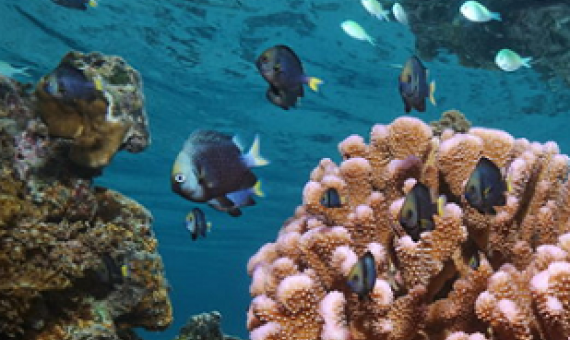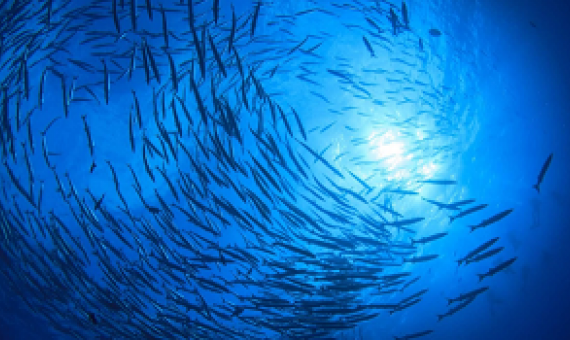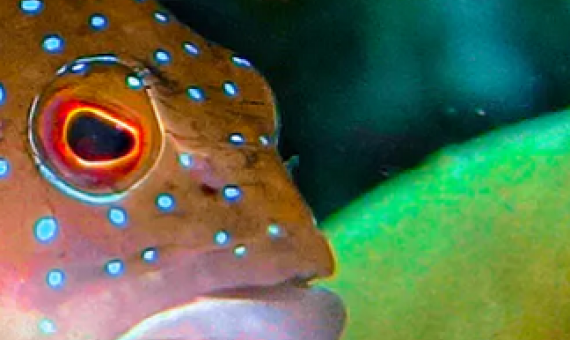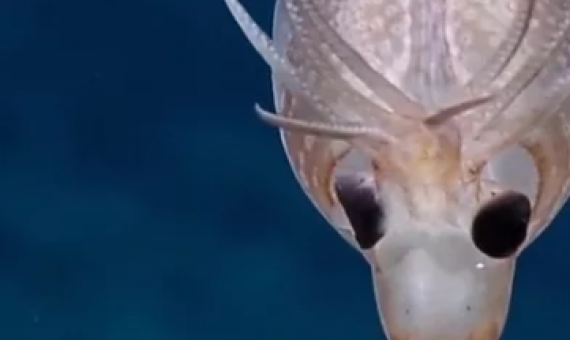A Pacific environmentalist says temperature rise could leave equatorial Pacific countries without their main protein source.Taholo Kami is calling for more research into how much temperature change reef fish species can sustain.
DEEP-SEA DILEMMA
The deep sea — usually defined as the realm below 200 metres — is a world of extremes. Temperatures near the sea bed in many places hover near 0 °C, there is next to no light, and pressures can exceed 1,000 bars, equivalent to having a couple of elephants standing on your big toe. But still life thrives. The deep sea contains a vast array of ecosystems that researchers have barely begun to study. The ocean floor holds vast deposits of ores containing sought-after metals.
IN DEEP WATER - The emerging threat of deep sea mining
The oceans are facing more threats now than at any time in history. Yet a nascent industry is ramping up to exert yet more pressure on marine life: deep sea mining. A handful of governments and companies have been granted licences to explore for deep sea mining in ecologically sensitive waters, and the industry is positioning its development as inevitable, but deep sea mining isn’t happening anywhere in the global oceans – yet.
Changing geo‐ecological functions of coral reefs in the Anthropocene
The ecology of many coral reefs has changed markedly over recent decades in response to various combinations of local and global stressors. These ecological changes have important implications for the abundance of taxa that regulate the production and erosion of skeletal carbonates, and thus for many of the geo‐ecological functions that coral reefs provide, including reef framework production and sediment generation, the maintenance of reef habitat complexity and reef growth potential.
Coral reef ecosystem services in the Anthropocene
Coral reefs underpin a range of ecosystem goods and services that contribute to the well‐being of millions of people. However, tropical coral reefs in the Anthropocene are likely to be functionally different from reefs in the past. In this perspective piece, we ask, what does the Anthropocene mean for the provision of ecosystem services from coral reefs? This synthesis of the coral reef ecosystem services literature suggests the field is poorly prepared to understand the changing service provision anticipated in the Anthropocene.
The meaning of the term ‘function’ in ecology: A coral reef perspective
The inherent complexity of high‐diversity systems can make them particularly difficult to understand. The relatively recent introduction of functional approaches, which seek to infer ecosystem functioning based on species’ ecological traits, has revolutionized our understanding of these high-diversity systems. Today, the functional structure of an assemblage is widely regarded as a key indicator of the status or resilience of an ecosystem. Indeed, functional evaluations have become a mainstay of monitoring and management approaches.
New Zealand’s marine and coastal environments have significant ecological, economic, cultural and social value, but they face many threats. Disjointed legislation and considerable knowledge gaps limit our ability to effectively manage marine resources.
The Office of the Auditor-General is the latest body to argue reform of marine reserve legislation and wider marine biodiversity management is needed if NZ is to lift the area covered by marine reserves. Click on the link below to read the full article.
One hectare of ocean in which fishing is not allowed (a marine protected area) produces at least five times the amount of fish as an equivalent unprotected hectare, according to new research published today. Click on the link below to read the full article.
The team aboard the Exploration Vessel Nautilus team used a camera to enjoy a close-up with a see-through piglet squid (Helicocranchia sp.), named for its large siphon that looks like a snout. Click on the link below to read the full article.











